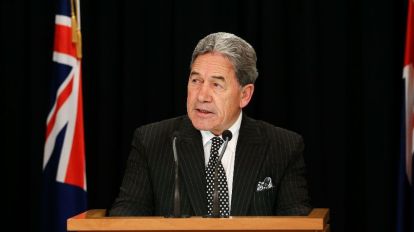The New Zealand government stated it raised concerns on Tuesday with the Chinese government regarding its alleged involvement in a state-sponsored cyber hack on New Zealand’s parliament in 2021, uncovered by the country’s intelligence services.
The disclosure coincides with Britain and the U.S. accusing China of a widespread cyber espionage campaign and reveals that malicious cyber activity targeted New Zealand’s parliamentary entities.
Both New Zealand and Australia have denounced this broader activity.
“Foreign interference of this nature is unacceptable, and we have urged China to refrain from such activity in the future,” stated New Zealand’s Foreign Minister Winston Peters in a statement.
He stated that they had communicated concerns about cyber activities attributed to groups sponsored by the Chinese government, which targeted democratic institutions in both New Zealand and the United Kingdom, to the Chinese ambassador.
During a parliamentary committee meeting on Tuesday, a senior New Zealand intelligence official revealed that seven citizens had provided training to China’s military over the past 18 months.
He described this as a “major national security risk.”
The Chinese Embassy in New Zealand, through a spokesperson, stated via email that they categorically reject “such groundless and irresponsible accusations.”
They further expressed their dissatisfaction and firm opposition to the New Zealand authorities.
The accusation of China engaging in foreign interference is completely unfounded.
We have never interfered, nor will we ever interfere, in the internal affairs of other countries, including New Zealand. Such allegations are baseless,” stated the spokesperson.
Earlier on Tuesday, the government reported that its communications security bureau (GCSB), responsible for overseeing cybersecurity and signals intelligence, had identified connections between a Chinese state-sponsored actor referred to as Advanced Persistent Threat 40 (APT40) and malicious cyber activities targeting New Zealand’s parliamentary services and parliamentary counsel office in 2021.
According to the GCSB, APT40, linked to the Ministry of State Security, accessed significant information crucial for New Zealand government operations.
However, the hackers didn’t take any sensitive or strategic data. Instead, experts believe they removed technical information that could enable further intrusive actions.
In the previous financial year, state-sponsored actors, although not specifically China, were attributed to 23% of the 316 malicious cyber events involving nationally significant organizations.
New Zealand condemned similar cyber activity by the Russian government.
Minister Judith Collins emphasized that cyber espionage undermining democratic institutions is unacceptable.
Late Monday, U.S. and British officials filed charges and imposed sanctions on China, accusing it of extensive cyber espionage.
The hacking group, named APT31, allegedly targeted government officials, defense contractors, and critics of Beijing worldwide.
Australia’s Foreign Minister Penny Wong and Home Affairs Minister Clare O’Neil condemned such actions, stating they threaten democratic societies.
Also Read: Russia Adds ‘LGBT Movement’ To List Of Extremist Organisations
In 2019, Australian intelligence linked China to a cyber-attack on its national parliament and political parties before a general election but didn’t officially disclose the findings.
Andrew Hampton, Director-General of Security at New Zealand’s Security Intelligence Service, informed a parliamentary committee on Tuesday that seven citizens had left roles at companies providing military training to China.
He stated they passed on expertise gained from prior military and New Zealand Defence Force employment, posing a significant national security risk.
Reuters



